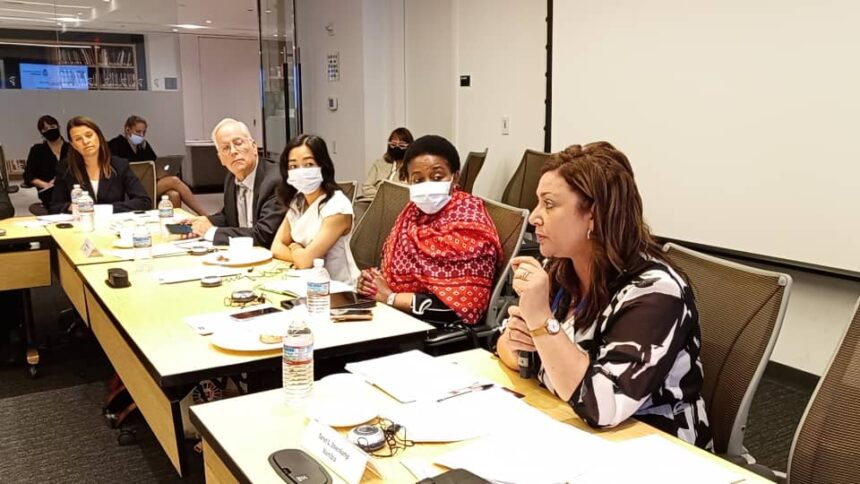One of the experts who crafted the new education curriculum says there is no ground to question the quality of the new Namibia Senior Secondary Certificate Ordinary curriculum, as it is benchmarked against the International General Certificate of Secondary Education (IGCSE).
In an interview with New Era, former director of the National Institute for Educational Development (NIED) Hertha Pomuti maintains the new curriculum will eventually improve the quality of education in the country.
“The new NSSCO (as well as the old NSSCO) is equivalent to IGCSE and Cambridge O-level. So, it is important to advocate for a holistic understanding of issues that influence learners’ performance rather than single out one issue or factor and work out a collective strategy to improve the quality of education in Namibia,” she stated.
The grade 11 ordinary level results, which were released on Friday, brought widespread confusion and mixed emotions. Some blamed the learners’ performance on the implementation of the new curriculum, while others questioned the future of the learners who could only obtain NSSCO certification as some institutions such as the University of Namibia already indicated last year, they would not admit candidates with such certification.
Pomuti said many factors influenced learners’ performance, such as quality learning and working environments, sanitation facilities, healthy learners, quality teachers, teaching methods, school management, curriculum and assessment, educational facilities, learning support materials as well as home and language backgrounds. In defence, she also said the impact of Covid-19 on teaching and learning cannot be underestimated.
“The year 2021 was very difficult for learners, teachers, parents and the Namibian society at large. We are all aware that since the outbreak of Covid-19 the education sector, especially the basic education sub-sector, has seen major disruptions. There were challenges with online teaching, especially in schools in rural areas with no access to the internet and electricity,” she said, adding that instead of parents and community being concerned about the grade 11 performance, they should rather be committed to supporting their children and the schools during the year.
Of 46 977 full-time candidates that wrote the exam last year, 38 000 (81%) are unable to proceed to the Advanced Subsidiary level. Education minister Anna Nghipondoka yesterday said 81% of grade 11 learners that did not qualify for AS level did not fail.
She said the AS level is an additional grade that will be done by learners who can do it. “The old curriculum excluded some learners from doing high level. It doesn’t mean the learners failed. They did not fail.
They still qualify with C or B in English and enrol to other high institutions. The confusion came last year when some institutions said they won’t take these kids. The ordinary level for Grade 11 in this new curriculum is the same as the old curriculum for grade 12. The children are not thrown on the streets and they are not failing. Those not meeting requirements have other options. Last year, we decided that learners below 17 years old are allowed to repeat,” Nghipondoka told parliamentarians.
Performance dissatisfaction
Although Nghipondoka is satisfied with the learners’ performance saying there is an improvement compared to 2020 results, the Namibia National Students Organisation (Nanso) expressed its dissatisfaction.
In an announcement, calling for the national executing committee meeting to address the matter yesterday, Nanso’s acting spokesperson, Esther Shakela said the results are reflective of the impediments that exist within the basic education fraternity in the form of structural and systematic challenges, particularly with the implementation of the new curriculum.
She further said the new curriculum offers learners little to celebrate. “This is a national crisis that must be addressed with necessary rigor,” said Shakela.
New curriculum explained
According to a circular of the ministry of education, candidates who passed grade 10 revised curriculum will progress to grade 11 on a full-time basis depending on the availability of spaces at schools. Ordinary level learners of the revised curriculum, who are 17 years and younger by 31 December 2022, should be allowed to repeat on a full-time basis. ashikololo@nepc.com.na



